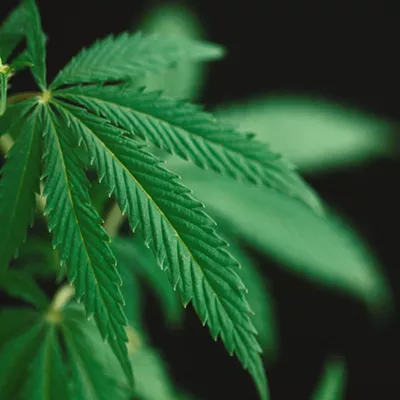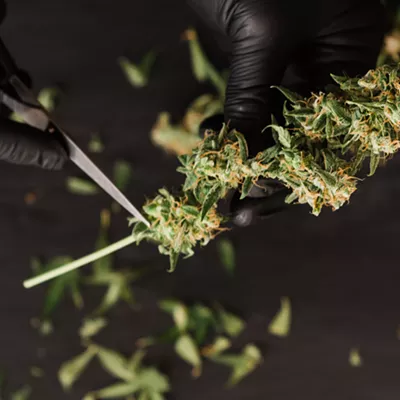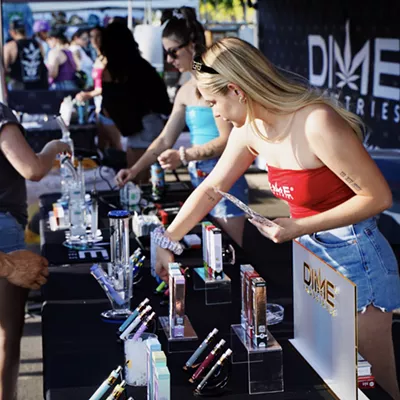Arizona is a pretty unique state when it comes to cannabis. We've heard those in the industry call it "the wild west" in reference to relatively lax laws surrounding testing, but it's wild in other ways as well.
Despite not yet going completely legal, Arizona has the fourth-most dispensaries of any medical or recreational state—beating out even recreational states of Washington and Alaska—hitting 117 in March, according to a list provided by the Arizona Department of Health Services.
That's still nearly double that of Nevada, which went recreational in 2017 and has 61 dispensaries, and 1.5 times that of New Mexico, where medical cannabis has been legal since 2007 and has 91 dispensaries.
And with nearly 200,000 patients, the demand isn't anything to scoff at either.
Maybe that's why it's been a battleground for some of the biggest names in cannabis across the country.
MedMen and Curaleaf began carving out territory in the Phoenix metro area late last year. MedMen has three retail locations while Curaleaf acquired five. However, neither rivals Harvest, which has nine locations across the state, including one along Grant Road near Tucson Boulevard.
Together, those three companies make up three of the largest cannabis empires in the country, excluding Green Thumb Industries, which has yet to gain a foothold in Arizona, and Acreage Holdings, which is primarily an investment firm.
Curaleaf announced a new deal on May 1 to buy Cura Partners, based in Portland, Oregon, for $949 million in stock. While the deal doesn't bring any new locations, it adds Select brand oils and CBD to Curaleaf's portfolio.
Curaleaf does, however, have the most open retail locations in the country with 44 across eight states, heavily concentrated in Florida.
However, that doesn't top Harvest's plan to hold 130 licenses, which is as many licenses as the entire state of Arizona has all together. GTI holds 77 licenses, most of which operate under their Rise retail brand, so even in a race for retail, Harvest should eventually take the lead.
But Curaleaf's acquisition was the largest to date, overtaking Harvest's recent $850 million all-stock deal to buy Verano Holdings, a brand company out of Chicago. Before that, it was MedMen's $682 million in stock deal to buy PharmaCann, also based in Chicago.
When Arizona eventually legalizes adult-use cannabis, possibly by 2020, there may be a few new licenses on the market. How many (or even if) there will be has yet to be determined, as does the distribution process.
In the past, new licenses have been awarded through lottery systems, but now that Arizona's cannabis market is much more mature, state regulatory agencies may find a less random way of deciding who gets the new tickets into the industry.
That may be GTI's chance to break into a booming market.
However, they have yet to utilize the licenses they have (only 18 retail stores are currently open) or break into markets in Oregon and Washington. Though, with supply troubles in the northwest, that might not be a game they're eager to play.
MedMen is currently mired in a $20 million lawsuit filed by its former CEO for allegedly holding out on compensation and partaking in a "pump-and-dump" scheme, which entails driving up stock prices and selling them off to make some quick cash.
While that kind of cash is only a fraction of their net worth, it's still a PR hit no company wants to take, so they might not be so focused on national expansion at the moment.
Keeping an eye on big-name cannabis consolidations around the country and in Canada has kept investors busy, but the real value of these cannabis conglomerates may only reveal itself if the U.S. legalizes adult-use cannabis in the near future.
Until then, legislation like the SAFE Banking Act, which would ease banking regulations on the cannabis industry, could give the industry a boost by making their cashflows a little smoother.







